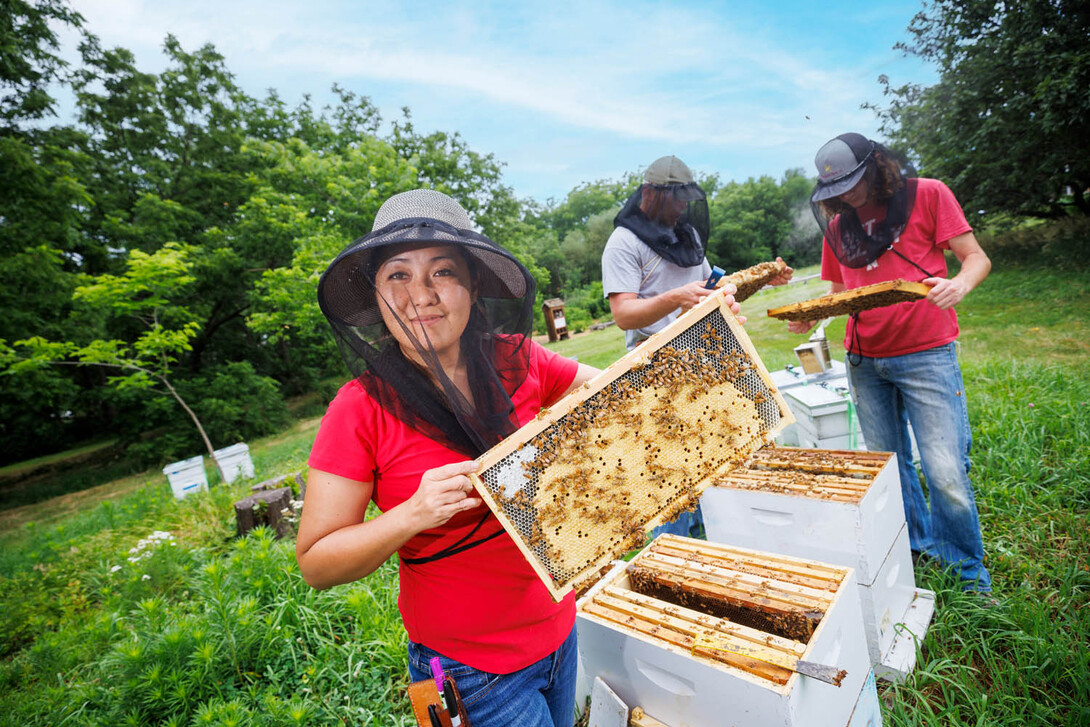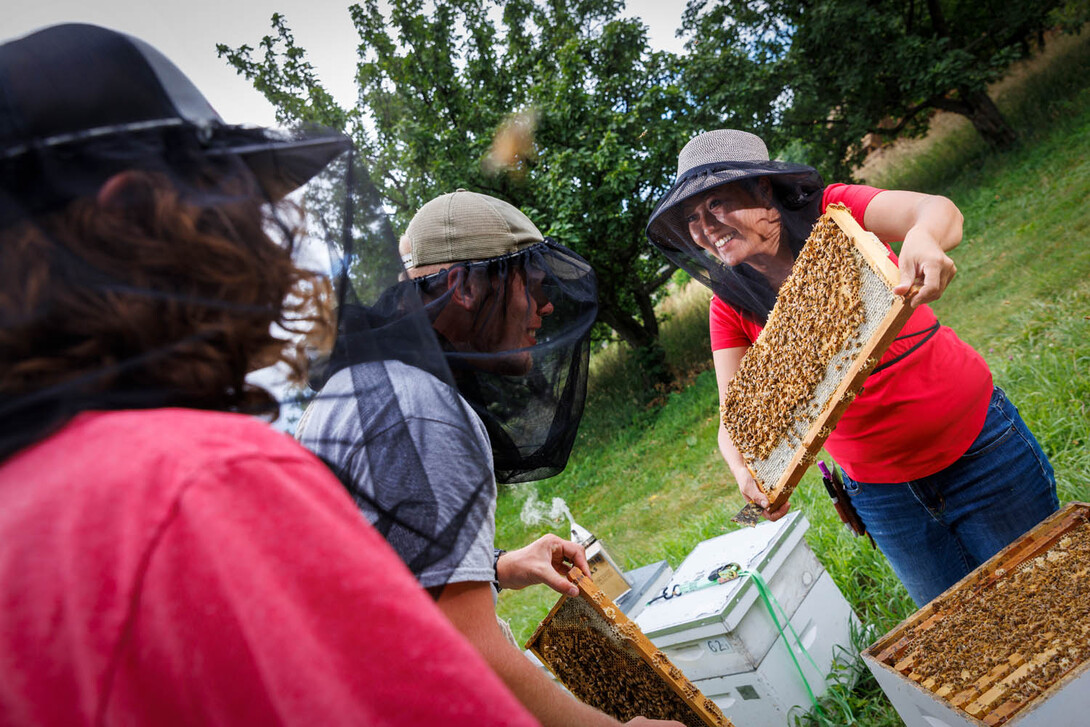
Keeping honeybees isn’t just a hobby. The pollinators play vital roles in food production and the environment, but climate change and pesticides are weakening hives and reducing honey production.
To help reverse these trends, Nebraska runs Great Plains Master Beekeeping, a program providing educational materials and hands-on training to the region’s beekeepers.
“There’s an overabundance of online resources, but it’s actually causing problems for our area. What works in Texas isn’t going to work here,” said Judy Wu-Smart, associate professor of entomology and director of the University of Nebraska–Lincoln Bee Lab. “The idea is to provide beekeeping training that makes sense for the Midwest region.”
For example, the program counters the popular message of letting weak hives die out. With the region’s high concentrations of beekeepers, that’s a recipe for mites and other diseases to spread.
The program partners with beekeeping associations to create open apiaries, places where all levels of beekeepers receive hands-on training, a critical component that’s largely been lacking regionally. Educational materials cover everything from managing hive health to liability and marketing.

The program trains and funds local beekeepers to run the educational component and maintain the apiaries. Husker undergraduate and graduate students conduct much of the training, providing valuable services while honing their extension and science communication skills.
Wildly popular, the program has grown more than 600% since it started in 2019. More than 1,600 beekeepers in six states have participated.
Keeping bees healthy also means caring for the environment. The program incorporates land stewardship training, including conservation practices and pollinator-friendly landscaping.
Beekeepers become advocates for the environment. They talk with farmers about integrated pest management and conserving natural resources to benefit bees and the crops they pollinate.
“It brings more awareness to the role beekeepers play in our agroecosystems,” Wu-Smart said. “A lot of people don’t realize that honeybees provide critical pollination services to numerous food systems. If we lose our beekeepers, it’s going to be harder for us to be successful in our farming as well.”
The U.S. Department of Agriculture’s National Institute of Food and Agriculture funds the program.
Stories on this scholarly activity and more was featured in the 2021-2022 University of Nebraska–Lincoln Research Report, now available online.







